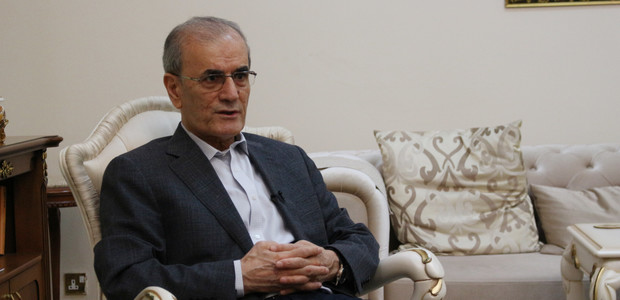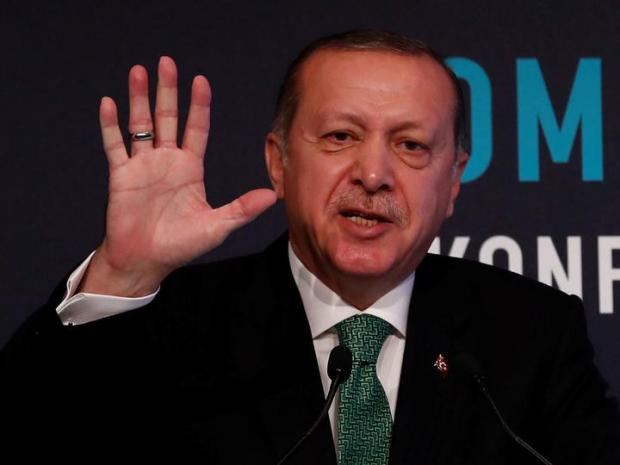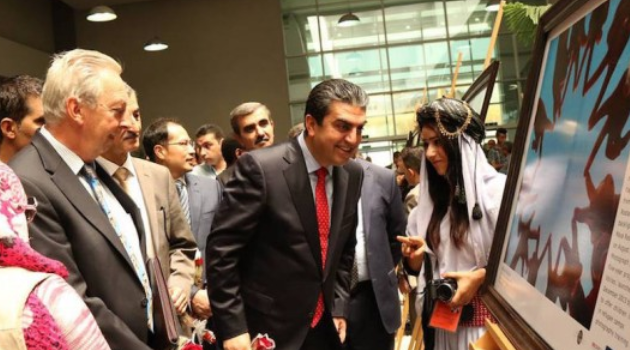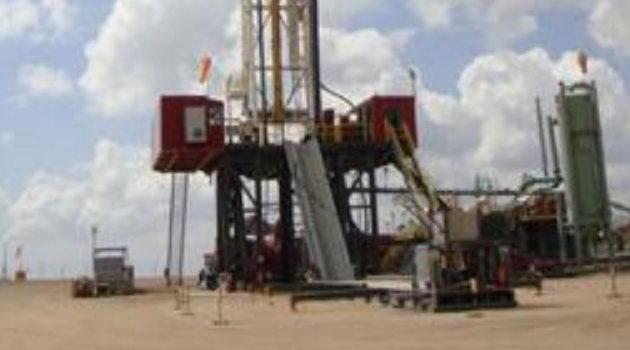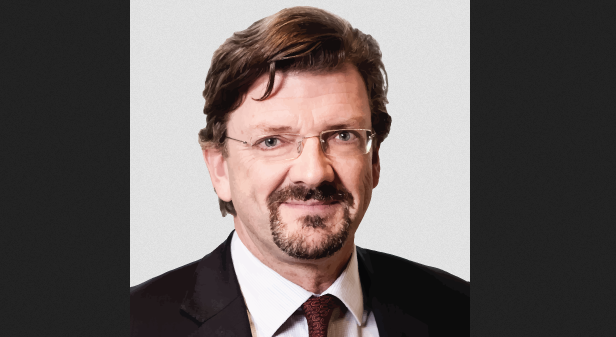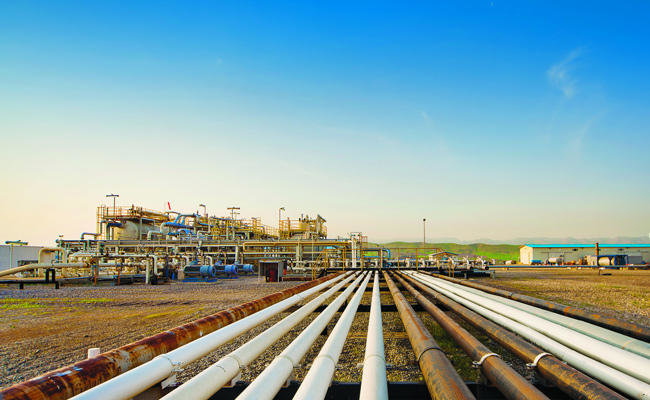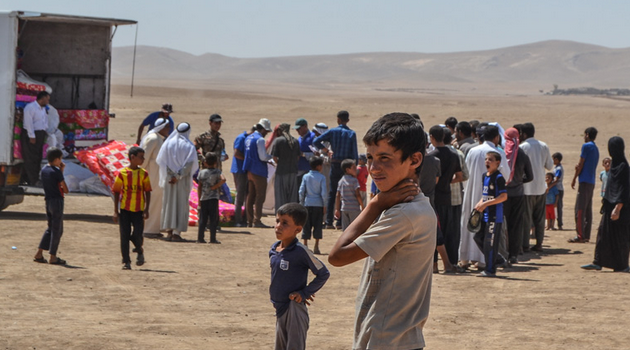This article was originally published by Niqash. Any opinions expressed are those of the author, and do not necessarily reflect the views of Iraq Business News.
Kirkuk’s Kurdish Governor: If Baghdad Blockades Us, ‘We Will Manage’
In an interview, the controversial governor of Kirkuk, Najmuddin Karim, talks about Baghdad’s attempts to fire him, military tensions and what happens if Baghdad stops sending money.
On September 14, the Iraqi parliament voted to dismiss the governor of Kirkuk from his post. The decision came after the governor, Najmuddin Karim, said that the Kirkuk area would also take part in the Kurdish referendum on independence held this week, on Monday.
The Kurdish minority in Iraq want their region to secede from the rest of Iraq and to begin to start a new nation; they already have their own government, military, and borders.
The decision on Karim’s position was made in the Iraqi parliament even though Kurdish MPs boycotted the vote. Karim rejected the dismissal as did the political party he belongs to, the Patriotic Union of Kurdistan, or PUK, and the Iraqi Kurdish government, which controls the semi-autonomous northern region.
The Kirkuk provincial council also supported the governor. However Arab and Turkmen members of the council who represent a significant proportion of Kirkuk’s population boycotted the session.
Kirkuk is one of Iraq’s most controversial “disputed areas” – that is, an area that the Iraqi government says belongs to Iraq but which the Kurdish believe should be part of their region. Although the Iraqi Kurdish military control the district, the population includes significant numbers of Arabs and Turkmen too, and this is why the city is often referred to as a potential flashpoint for ethnic conflict.
Karim spoke to NIQASH about the Kurdish referendum on independence as well as his dismissal and its ramifications for his authority in Kirkuk in the future.
NIQASH: There were a number of different options presented to the Kurdish leadership along with requests to postpone the referendum, but none of them seemed to be acceptable. Why?
Najmuddin Karim: The alternative proposals were not concrete. When the Iraqi prime minister spoke about problems, he was talking about amending the Constitution, which isn’t possible. We would only have agreed to postpone the referendum on condition that a date for Kurdish independence was set. There is no doubt that Kirkuk has a Kurdish identity and that its fate is entwined with that of the Kurdish region.
Turkey Threatens to Invade Iraq, Cut Off Oil Pipeline
By John Lee.
Turkish President Recep Tayyip Erdoğan (pictured) has threatened to invade Iraq, and said he could cut off the oil export pipeline from Iraq to the Turkish port of Ceyhan, following the vote supporting independence in Iraqi Kurdistan.
“We have the tap,” he said. “It is done once, we close the tap.”
The pipeline typically carries between 500,000 and 600,000 barrels of crude oil per day.
In a strongly-worded speech, Erdoğan said that fighting the Iraqi Kurdish bid for independence was “a matter of survival“.
His Prime Minister, Binali Yildirim, added that Ankara could take punitive measures involving borders and air space against the Kurdistan Regional Government (KRG).
Shares in Genel Energy fell 7 percent in early trading on Tuesday, but had recovered by lunchtime; Gulf Keystone Petroleum (GKP) was down 2 percent, while Norway’s DNO was 5 percent higher.
(Sources: The Independent, Alliance News, Reuters, Yahoo!)
Crescent Petroleum, Dana Gas support Healthcare Centre for IDPs
By Robert Cole, AMAR Foundation.
Crescent Petroleum, one of the Middle East’s oldest and largest upstream oil companies, and Dana Gas, one of the largest private sector natural gas companies in the region, have joined forces to fund the running costs of a healthcare centre and vocational training centre for displaced people in the Kurdistan Region of Iraq for the next three years, the two companies today announced.
The three-year commitment will fund the entire running costs of AMAR International Charitable Foundation’s Primary Healthcare Centre and vocational training centre in Khanke Camp, which serve the whole community, including 16,000 Yazidi residents.
The healthcare centre plays a vital role in providing healthcare to those who would otherwise be unable to access medical support. In the second quarter of 2017, the clinic saw 26,404 cases, conducting 5,411 maternal health consultations and 2,034 child consultations.
Commenting on the donation, Crescent Petroleum’s CEO Majid Jafar said:
“At Crescent Petroleum, we aim to empower local communities by not only providing energy solutions to fuel their development, but also by responding to their social and economic needs. Internally displaced people (IDPs) are among the world’s most vulnerable populations but they are often overlooked by international relief efforts, and we are committed and honoured to assist their healthcare needs in partnership with AMAR Foundation.”
The natural gas produced by the companies from the Khor Mor field supplies more than 1,750 MW of affordable electricity to the Kurdistan Region, giving schools, hospitals and other vital entities a non-disruptive water and electricity supply for millions of people.
The Duhok Health Directorate has seen the population of the region more than double over the last two and a half years due to the massive influx of IDPs from the Sinjar and Mosul regions, putting increasing pressure on healthcare access.
Patrick Allman-Ward, Dana Gas’ CEO, said:
“Our corporate social responsibility programme has been at the heart of Dana Gas’ operations since its inception in 2005. Providing financial support to those in need is not only a moral obligation, it also has a positive impact on the communities where we operate.”
AMAR’s Chairman and Founder, the British Conservative Peer, Baroness Nicholson of Winterbourne, said she was “overwhelmed” by the generosity of Dana Gas and Crescent Petroleum:
“AMAR builds, staffs and runs five state-of-the-art heath centres on an extremely low budget. The generous donation from Crescent Petroleum and Dana Gas means we can continue with the marvellous work being done in Khanke by our locally trained doctors and nurses for the next three years.”
PLEASE CLICK HERE IF YOU CAN HELP – ANY AMOUNT LARGE OR SMALL.
(Source: AMAR Foundation)
ShaMaran starts Drilling at Chiya Khere
ShaMaran Petroleum has announced that drilling operations have commenced on the Chiya Khere (“CK-7”) appraisal and development well in the Atrush Block in the Kurdistan Region of Iraq.
CK-7 is located in the central area of the Atrush Block approximately 3 kilometres east of the Atrush 2 producing well and 3.5 kilometres west of the Atrush 3 appraisal well.
The main objectives of the well are to appraise the commercial potential of the Mus formation, to help reduce the uncertainty in the location of the medium to heavy oil transition zone and to serve as a further producing well.
The well will be drilled with the EDC Romfor 25 drilling rig (pictured) and is expected to take approximately 52 days. Planned total vertical depth for the well is approximately 1,575 metres.
(Source: ShaMaran)
GKP Shares Down on Half-Year Results
Shares in Gulf Keystone Petroleum (GKP) were trading down 3 percent this morning following the announcement of its results for the half year ended 30 June 2017.
Reuters quotes analysts at Cenkos Securities as saying that further clarity on payment is required before GKP can commit to proper capital expenditure.
Highlights to 30 June 2017 and post reporting period
Operational
- Gulf Keystone’s operations in the Kurdistan Region remained safe and secure throughout H1 2017 with plant uptime at PF-1 and PF-2 of over 99% with no lost-time incidents.
- Shaikan achieved average daily production of 36,664 bopd.
- Cumulative production from Shaikan has now exceeded 40 million barrels.
- In March 2017, Shaikan-8 (“SH-8”) was brought back on-stream.
- In April 2017, ERC Equipoise verified remaining gross Shaikan 2P reserves of 615 MMstb, as at 31 December 2016.
- With gross production of c.35,350 bopd in Q3 2017 so far, gross production guidance for 2017 remains at 32,000-38,000 bopd.
- Operational strategy for investment into Shaikan has been matured throughout 2017.
Financial
- Cash flow positive through H1 2017.
- The Group has continued to receive regular payments from the Ministry of Natural Resources (“the MNR”) of $15 million gross ($12 million net to GKP) with cash receipts of $84 million net to GKP year to date.
- Continued cost control with gross operating costs per barrel of $3/bbl (H1 2016:$4/bbl).
- Profit after tax of $0.7 million (H1 2016 (as restated): loss after tax of $232.6 million).
- As at 30 June 2017, the Group estimates an unrecognised revenue receivable of $33 million net to GKP with regards to unpaid export sales (December 2016: $25 million) and $76 million net to GKP for the past costs associated with the Shaikan Government Participation Option (December 2016: $71 million).
- Cash balance at 30 June 2017 of $118.8 million against $100 million debt principal.
- Cash balance at 18 September of $133.8 million.
- April 2017, decision taken to pay Reinstated Notes coupon of $5.1 million at 10% interest rate. The decision regarding the October 2017 coupon will be communicated to the market in due course.
Outlook
- The Company is progressing in its ongoing discussions with the MNR regarding commercial and contractual conditions, in particular those around regular payments conforming to the Shaikan Production Sharing Contract (“PSC”) and crude marketing arrangements.
- GKP is preparing to make further investments to maintain plateau production at the nameplate capacity of 40,000 bopd with a view to increasing to 55,000 bopd, and beyond, subject to MOL and MNR approvals, a regular payment cycle from the MNR and a commercially acceptable investment environment.
Jón Ferrier (pictured), Gulf Keystone’s Chief Executive Officer, said:
“The first half of the year was a period of solid operational delivery, which has seen the Shaikan field continue to perform in line with expectations.
“The Company continues its dialogue with the MNR with the objective of achieving contractual and commercial clarity. Whilst continuing to maintain a rigorous and disciplined approach to its cost base, Gulf Keystone remains cash flow positive and well placed to continue to invest in increasing production from Shaikan.”
(Sources: Gulf Keystone Petroleum, Reuters, Yahoo!)
DNO Joins ExxonMobil on Baeshiqa License
DNO ASA, the Norwegian oil and gas operator, today announced an agreement with ExxonMobil to join the Baeshiqa [Bashiqa, Bashika] license in the Kurdistan region of Iraq.
DNO will assume operatorship of the license with a 40 percent paying (32 percent net) interest, acquiring one-half of ExxonMobil’s position.
ExxonMobil retains a 40 percent paying (32 percent net) interest, the Turkish Energy Company (TEC) its 20 percent paying (16 percent net) interest and the Kurdistan Regional Government its 20 percent carried interest.
Pending Government approval, DNO will drill an exploration well in the first half of 2018 with a second exploration well to follow on a separate structure.
The 324 square kilometer license is situated 60 kilometers west of Erbil and 20 kilometers east of Mosul. ExxonMobil had previously conducted extensive geological and geophysical studies and constructed a drilling pad before work was interrupted due to security conditions in the region.
The Baeshiqa license contains two large, undrilled structures which are expected to have multiple independent stacked target reservoir systems, including in the Cretaceous, Jurassic and Triassic.
DNO currently operates two other licenses in Kurdistan: one contains the Tawke and Peshkabir fields which together produce over 110,000 barrels of oil per day and the other the Benenan and Bastora heavy oil fields which are undergoing further appraisal and development. With three rigs currently deployed, the Company is the most active driller among the international operators in Kurdistan.
Bijan Mossavar-Rahmani (pictured), DNO’s Executive Chairman, said:
“We are pleased to partner with ExxonMobil, TEC and the Government on this exciting exploration opportunity.
“We bring to the project a 10-year record of successful and fast-track operations in Kurdistan, culminating in more than 200 million barrels produced to date.
“Following regularization of export payments and a landmark agreement with the Government to close out our historical receivables, our foot is back firmly on the accelerator.”
(Source: DNO)
IOM Emergency Unit Assists IDPs from Tal Afar
This past week the International Organization for Migration (IOM), the UN Migration Agency, sent emergency teams from its Erbil, Iraq, mission to provide front-line non-food item (NFI) assistance to an informal settlement of internally displaced persons (IDPs). The settlers are principally nomadic herders fleeing ISIL’s last remaining major stronghold in Iraq: Tal Afar.
Following the fall of Mosul, 255 families – mostly shepherds with their livestock – fled from villages on the outskirts of Tal Afar to establish an informal camp in Badoush, about 40 kilometres from Tal Afar city, in Iraq’s Ninewa governorate.
They escaped about six weeks ago.
Iraqi forces are preparing to launch a military offensive on Tal Afar – a city originally of 200,000 people in Iraq’s northern Nineveh province, before ISIL took control of it in mid-2014. Although the militant group has lost nearly two-thirds of the territory it once controlled, it remains active in some of the country’s northern and western areas.
Tal Afar city, with the largest Turkmen population in the country (a mix of Sunni Turkmen and Shia Arabs), is located about 60 kilometres west of Mosul.
According to reports from Tal Afar, where an estimated 10,000 to 40,000 people remain in the city, ISIL is preventing people from escaping, as it did in West Mosul, by shooting at families attempting to flee.
Those managing to flee the city, mostly women, children and the elderly, must take a meandering route to avoid being spotted by ISIL, mostly arriving in the late hours of the night.

